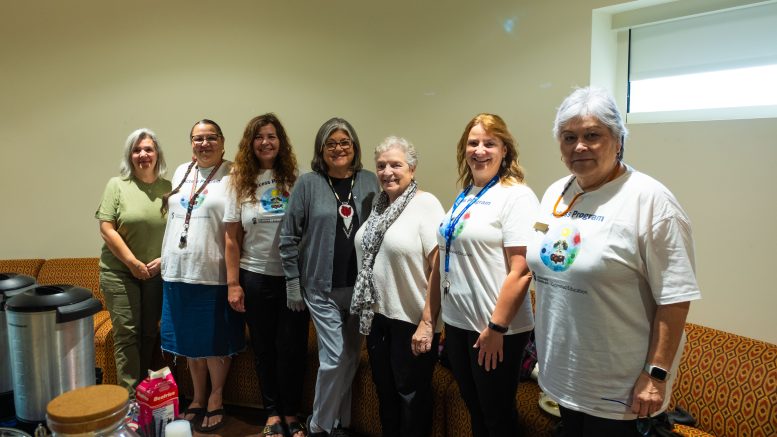The U of M’s Access Program celebrated its jubilee anniversary on Sept. 11 at Migizii Agamik (Bald Eagle Lodge). The milestone marked five decades of supporting students who have faced barriers to education and providing them with a pathway to success.
Launched in 1975, the Access Program was designed to open doors for individuals who had historically been excluded from post-secondary opportunities. Nearly half a century later, the mission remains the same — to remove obstacles and provide the tools students need to succeed both in and beyond the classroom.
Diedre A. Desmarais, area director of the Access and Aboriginal Focus Programs, touched upon the purpose of the Access Program, saying that it has “remained consistent.” She added, “We recruit then accept those students who have traditionally faced barriers to post-secondary education.” Since its inception, the Access Program has supported more than 700 students. Alumni have gone on to excel in medicine, law, nursing, liberal arts, fine arts and more.
“Our alumni cross all disciplines […] and have become fine role models for those following in their footsteps,” Desmarais said.
One such success story is that of Marti Ford, who graduated from the Access Program three decades ago. Ford went on to earn a bachelor of arts, a bachelor of education, a master of education and a PhD. Today, she serves as the associate dean of Indigenous education and an assistant professor at the U of M. She currently shares her expertise both nationally and internationally.
“[She] is a shining example of success and how one person can break the trail for many more,” Desmarais said. “We are very proud of Dr. Ford, prouder still that she chose our program to assist in her success.”
The program’s longevity is rooted in its ability to adapt. In recent years, this has included developing a partnership with the faculty of education to address the province’s need for more teachers. In the 2024–25 academic year, the program offered its first “Introduction to Teaching” course as part of this initiative.
Looking forward, the Access Program is exploring ways to partner with Indigenous communities to offer university credits locally, allowing students to remain in their home communities while beginning their academic journeys.
“We try very hard to stay relevant and address the [needs] of our provincial communities in the moment,” Desmarais said.
Alongside its achievements, the program continues to face challenges. “Our greatest challenge is finances […] but the Access team are highly committed professionals who have adapted to personnel shortages and fiscal restraints like the champions that they are,” Desmarais explained.
Desmarais sees the work as something that is deeply personal. “There is very little that our students face that is unfamiliar to me,” she said. “Every aspect of my career I see through the lens of my lived experience as an Indigenous woman and my experience as a lifelong learner who successfully achieved the dream of academic [success].”
As the program looks to the next decade, Desmarais is hopeful it will continue to thrive. “My hope for this program is that it is still around for many more decades,” she said. “There are many students who face almost overwhelming barriers to post-secondary success, and the community that we build in our program gives them a safe place to land.”
“Every program is only as good as the professionals who make it shine,” Desmarais added. “As for the Access students, we couldn’t be prouder. Your tenacity in academic struggle and your commitment to succeed is so admirable […] You are the true heroes.”
For more information about the Access Program, visit umanitoba.ca/student-supports/access-program.

